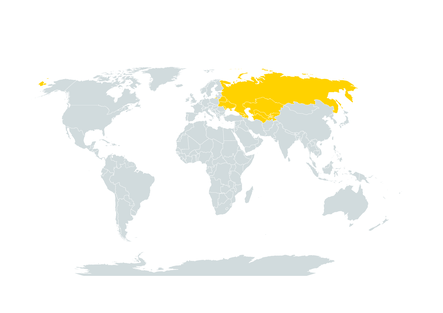About us
Mission

Since their independence from the Soviet Union in the early 1990s, all these countries have followed distinct paths, marked by diverging forms of political and economic development and reflecting their wide cultural, societal and geographical diversity. Eastern Europe and Eurasia have substantial geopolitical, geo-economic and cultural relevance for the European Union, which has developed highly interdependently with these two larger areas.
The ambition of the Ghent University’s Eureast Platform is to coordinate, facilitate and stimulate cooperation with Eastern Europe and Eurasia regarding education, research and service to society, as well as to advance knowledge about the above-mentioned regions and countries.
The Eureast Platform pursues three main objectives:
- To develop research collaborations and to promote exchange of students, researchers and lecturers;
- To foster study of and research on the region and to serve as an umbrella for several knowledge centres on Eastern Europe and Eurasia advancing academic and societal knowledge about these countries.
- To match and valorise academic expertise on Eastern Europe and Eurasia with external local and international partners.
On academic cooperation with Russia
Ghent University Human Rights Policy
Ghent University is a socially committed university and holds human rights in high esteem. The University and, hence, also Ghent University’s Eureast Patform, stimulates respect for human rights and minimizes the risks of human rights violations. Read more on Ghent University’s Human Rights Policy.
Platform Structure
The Steering Group is the decision-making body of the Eureast Platform, with representatives from all faculties. The daily management is assumed by the chairmen Prof. Ben Dhooge and Prof. Fabienne Bossuyt and by the coordinator Mrs. Anna Sashchenko. Once a year the advisory board convenes, where representatives from the local partners meet.
Daily Management
- Chairmen: Prof. Ben Dhooge (Faculty of Arts & Philosophy) and Prof. Fabienne Bossuyt (Faculty of Political & Social Sciences)
- Coordinator: Mrs. Anna Sashchenko (International Relations Office)
Steering Group
- Daily management
- Representatives of each faculty:
- Prof. Ben Dhooge/Prof. Aleksiy Yudin - Faculty of Arts and Philosophy
- Prof. Peter Van Elsuwege, dr. Alina Cherviatsova - Faculty of Law
- Prof. Frank Witlox, Prof. Michael Ruzhansky - Faculty of Sciences
- Prof. Dmitri Krysko, Prof. Elizaveta Padalko - Faculty of Medicine and Health Sciences
- Prof. Anton Nikiforov/Prof. em. Guido Van Oost, Mariya Edeleva - Faculty of Engineering and Architecture
- Prof. Koen Schoors - Faculty of Economics and Business Administration
- Prof. Hans Nauwynck - Faculty of Veterinary Medicine
- Prof. Ine Lietaert - Faculty of Psychology and Educational Sciences
- Prof. André Skirtach, Nick Krekelbergh - Faculty of Bioscience Engineering
- Prof. Hristo Svilenov - Faculty of Pharmaceutical Sciences
- Prof. Fabienne Bossuyt, Dr. Laura Luciani, Prof. Bruno de Cordier - Faculty of Political and Social Sciences
- Dr. Dieter De Bruyn - central administration
Knowledge centres
The Eureast Platform hosts three knowledge centres bringing together scholars doing research on the countries and regions covered by the Platform’s focus area.
Viae Caspiae
- This knowledge centre focuses on the study of the Caspian region.
- Learn more about Viae Caspiae
Ukraine-plus
- The knowledge centre Ukraine-plus studies Ukraine and other Eastern European countries.
- Learn more about Ukraine-plus
CERISE: Centre for Russian International Socio-Political and Economic Studies
- The knowledge centre’s mission is to critically study and reflect on Russia.
- Learn more about CERISE
About the logo
The Eureast Platform’s logo is based on an ancient Slavic embroidery pattern which also appears in some Turkic cultures. It thus reflects the character and the diversity of the countries and societies within the Platform's scope. The basic symbol for 'fertile soil' in this embroidery pattern was re-designed, and stands for fruitful academic cooperation and academic exchange.
Newsletter
The Eureast Platform Newsletter keeps you informed on new developments in the cooperation with partners, funding opportunities and other useful information related to the Platform's focus regions. We send out a newsletter on a (bi)monthly basis.
Join!
Contribute!
Do you have news for us? Send your bit of news to eureast@ugent.be
